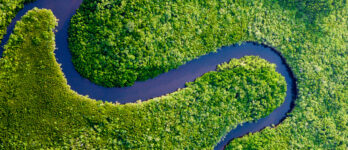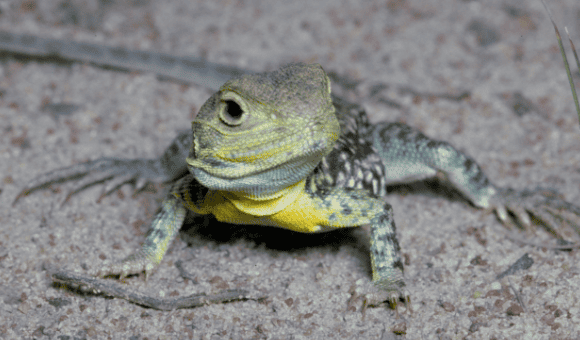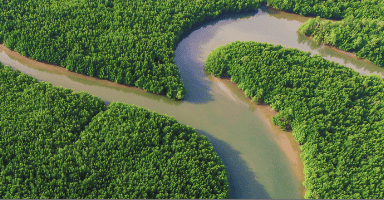
The Challenge
To meet the societal challenges of climate change, saving threatened species, reversing ecosystem deterioration and understanding cumulative impact we need cross-sector digital integration at scale.
This needs connected, enduring environmental digital infrastructures that support research and decision making. Research and data infrastructures need to form a digital ecosystem that enables different domains and sectors to access and combine data and network scientific models, link seamlessly to analysis platforms, and ensure model outputs are FAIR.
The Approach
The Modelling, Analytics and Decision Support Infrastructure (MADSI) program will establish national infrastructure that provides easy access to scientific models, analysis and decision-support tools, and platforms. Building on previous investments by the ARDC and in collaboration with partners, it will enable:
- sustainable platforms
- discoverability of community-endorsed models and analysis tools
- networking or chaining of scientific models
- decision-support tools informed by research
- linking of models and expertise across different sectors (research, industry, government) and across disciplines.
The program will provide enduring infrastructure to allow research, government and industry to build trust and confidence in digital research infrastructure, and the ability to enact long-term investment.
This program will do this by:
- developing a reference architecture for the Planet Research Data Commons (Planet RDC) digital infrastructure to enable research communities to easily build and deploy platforms and tools into a cohesive Planet RDC ecosystem at scale
- extending and maintaining extensible platform-as-a-service infrastructure that can be used by research communities – this will enable faster and more efficient deployment of cloud-based modelling, analytics, and decision-support capabilities
- developing governance arrangements for long-term collaborations between partners, business models for infrastructure operation, and ongoing user-support arrangements
- using the Shared Analytics Framework for the Environment (SAFE) to guide the development of infrastructure that aligns with and supports the national environmental data and information ecosystem.
Who Will Benefit
Earth and environmental science researchers will be able to discover, share and reuse trusted models and their outputs on national infrastructure, which will facilitate networked modelling across disciplines and sectors.
Environmental managers and decision makers will be able to incorporate decision-support tools that are informed by quality research into their operational workflows as the tools are backed by the ARDC’s enduring infrastructure.
MADSI will reduce cost and effort for researchers by providing long-term sustainable infrastructure services that allow research communities to focus on research rather than management of complex IT infrastructure.
Program Design and Consultation
The infrastructure will be designed using an ARDC-led, community co-design process with an initial focus on working with our current infrastructure partners in the biodiversity and ecology domains and their user communities.
The program phases are outlined below.
Consultation and facilitation
Consultations and roundtables with research, industry and government users, and roundtables with research infrastructure providers will identify opportunities to extend and develop integrations between existing infrastructures as described in the Planet Program Description. This phase will identify the priority capabilities for these communities, and potential partner-led projects, lead organisations and contributors.
This phase will also involve developing an understanding of the architecture of the existing landscape of national modelling, analytics and decision support platforms and model outputs and how they are currently connected.
As part of our consultations, we held a workshop in mid-August 2023 with 27 ecological modelling experts to discuss the digital research infrastructure needed to support researchers developing and using ecological and biodiversity models. Read the workshop report.
Proposal development
The ARDC will invite the key organisations identified through the consultation phase to submit proposals for projects to develop or provide the priority infrastructure capabilities.
Further roundtables during the proposal development phase will be used to refine the scope and the deliverables of the partner-led projects and ensure integration between the projects.
Target Outcomes
The infrastructure developed will be national-scale, interconnected and enduring.
MADSI will provide:
- discovery of, and access to, integrated national-scale datasets and model outputs across Planet domains
- the capability for research communities to discover, share and reuse trusted models and their outputs, which will facilitate networked modelling across disciplines and sectors
- easy deployment of models, analysis tools and workflows on national infrastructure
- rraining materials and mechanisms to support user communities.
The MADSI program is part of the Infrastructure focus area of the Planet RDC. The other integrated focus areas are Trusted Environmental Data and Information Supply Chains, Integrated FAIR Datasets and Services and Indigenous Knowledge Governance and Skills. All Planet RDC programs will be guided by the following principles :
- support national priorities and challenges
- work at the intersection between domains and disciplines
- increase interoperability and integration
- connect research, government and industry.
Key Resources
Read the report on the Planet RDC workshop on ecological and biodiversity.
Learn more about the Planet Research Data Commons (Planet RDC).
Read the program description for the establishment phase of the Planet RDC.



